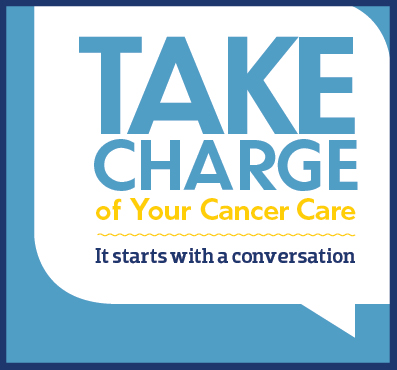Revisiting the Second Principle of the Imperatives for Quality Cancer Care—Treating the Whole Person
This month, as part of the 20 Years Later series, we are revisiting the second principle of the Imperatives for Quality Cancer Care: Access, Advocacy, and Accountability. The second principle states, “Quality cancer care should be available in a health care system whose standards and guidelines are developed in consideration of treating the whole person with cancer. Health care plans must regard the cancer patient as an autonomous individual who has the right to be involved in decisions about his or her care.” This principle was identified 20 years ago as cancer care was disease-centered and often did not include the values of the individual. This month, we will consider three components of treating the whole person:
- Psychosocial care,
- Shared decision-making, and
- Early integration of palliative care.
As reported in the Imperatives, the health care system in the mid-1990s viewed psychosocial care as an adjunct, as “value added,” rather than an essential component of treatment. In 1995, and in the years since, NCCS has advocated that psychosocial services should be provided for every person with cancer and must emphasize continuity, comprehensiveness, and a multidisciplinary approach. In addition, NCCS was a leader in asserting that the community needed to make greater investment in psychological oncology research to inform care standards and guidelines to ensure these needs were being met. Since 1995, many in the cancer community have rallied behind this principle and made concentrated efforts to incorporate psychosocial care into cancer care, however gaps still remain.

We have made two simple tools to help patients on their journey: The Know Yourself Worksheet and Essential Questions to Ask Your Doctor.
Treating the whole person also requires shared decision-making, where treatment decisions are made jointly between the provider and the individual with cancer and his or her family. Our patient resources teach self-advocacy, so that survivors can be partners in their care. Last year, we launched two tools to help patients express their needs, values, and preferences for their care and prepare for conversations with their care team and family members.
This month we will also look at early integration of palliative care as an additional component of treating the whole person. NCCS believes that palliative for cancer survivors must begin from the moment of diagnosis and continue for as long as it is needed. Palliative care is often equated with hospice or end-of-life care. In fact, palliative care should be seen as extra support to manage the physical and emotional effects of treatment. Palliative care should be available to anyone undergoing treatment for cancer or other serious diseases. This misconception on the part of both patients and providers does not serve patients well.
We look forward to hearing from survivors, community partners, and providers to get their perspective on progress and discuss how this principle relates to 21st century care. To begin this month, we ask you to watch a video clip from an interview NCCS CEO Shelley Fuld Nasso did with Susan Gubar in the Fall of 2014. Susan writes a series for The New York Times ‘Well Blog’ titled, Living with Cancer. In the clip below Susan discusses the importance of shared decision-making and the concept of doctor informative and doctor interpretive.
We would like to hear from you. In your experience, in what ways does the cancer care system succeed and fail at treating the whole person with cancer?



